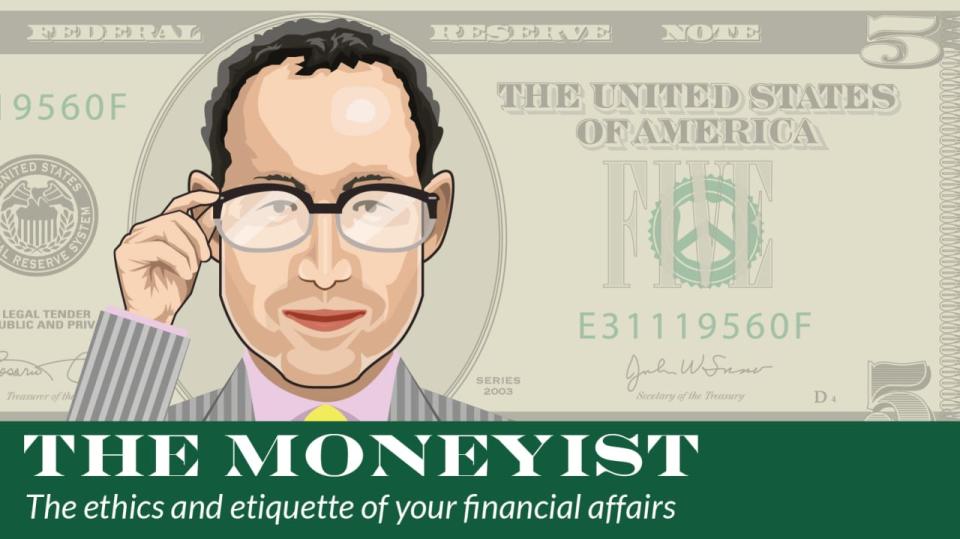Dear Quentin,
My beloved parent died and my brother and I inherited $185,000 each. I don’t know where to park my share, especially after the Federal Reserve cut rates last week.
My brother got a better interest rate because he acted quickly, and here I am, twiddling my thumbs, overwhelmed by banks. I freeze when there are too many options because I want to make the best decision.
Most read from MarketWatch
I’m considering putting $85,000 in a high-yield savings account that pays 5.3% for easy access, and putting the remaining $100,000 in a certificate of deposit that pays 5% and is locked up for seven months.
I need to use all this money to pay property taxes on an inherited house and to renovate and sell it. The house has been empty for six years, ever since my parents went into a nursing home. Minor cosmetic tweaks are required to get the most bang for your buck.
I will inherit even more money at the end of the year and will invest it more for the long term.
Thanks for any advice and suggestions.
Thinking about an inheritance
Related: ‘I have no regrets’: I’m 84 and estranged from my two adult sons. My 48-year-old wife gets my seven-figure estate. Is that selfish?


Dear Mulling,
Don’t worry about your brother. And don’t worry about missing anything.
You are not competing with anyone; you just want to get the best interest rate possible at the moment, and inheriting a large sum of money can be overwhelming. You’re not the only one who feels that. Sometimes doing nothing is the right thing to do. So many people make rash decisions when they find themselves in a windfall, or they seek advice from the wrong advisors – some of whom may be working on commission. So you did the right thing by taking your time.
There’s one key difference between CDs and high-yield savings accounts: the latter are more liquid, making it easier to withdraw your money. Normally admissions are limited to half a dozen per month. With CDs you commit to a certain period. But interest rates can change on high-yield savings accounts — even after you deposit your money — based on the Fed’s benchmark interest rate. When you buy a CD, the rate does not change.
As you know, CDs are investment vehicles with fixed interest rates that attract people looking for a safe haven for their money. CD rates generally track the federal funds rate, which has been between 4.75% and 5% following the Fed’s decision last Wednesday. In September you can still get rates of around 5.25%. CD ladders allow you to purchase one-, two-, three-, four-, and five-year CDs, so you have one that matures each year.
Interest rates began rising in 2022, but the highest CD rates have hovered around 5% since the start of the year. As we have seen with the high-profile special offers that come with many restrictions, there is competition among financial institutions for CDs. Since you want to use this money to make minor improvements to your parents’ former property, CDs allow you to easily access your money without having to pay fines, as long as you stick to the term.
Try not to be distracted by banks or credit unions that offer CDs at high rates. They are often marketed as ‘loss leaders’: in other words, they are special offers that only allow you to deposit a limited amount of money for a limited time. Generally, you must live in the state where these financial institutions are located, and you may only be allowed to invest $3,000 or $5,000 at the advertised rate. They generate publicity, but are often not exactly what they seem.
Considering the bigger picture
Looking beyond CDs and high-yield savings accounts to the bigger picture, Alonso Munoz, chief investment officer at Hamilton Capital Partners, expects interest rates to fall, particularly on short-term money market instruments, government bonds and high-yield savings accounts. and CDs. Taking into account your risk tolerance, he says, “think about locking in a certain term on fixed income.”
He adds: “High-quality fixed income and government bonds traditionally perform well during rate cut cycles. These ideas are accessible through low-cost exchange-traded funds for a portfolio of this size.” A lot depends on your time horizon. If you need your $185,000 in the short term, as you say, short-term Treasury bills still yield a decent return, Munoz says. For longer-term investments, look to equities, fixed income and sectors such as real estate, which perform poorly in a time of high interest rates.
In the meantime, it’s smart to renovate the property you want to sell to maximize its value. If it has been empty for six years, it needs a good cleaning and you need to make sure everything is in good condition. Remodeling Magazine has a list of renovations that are said to provide a good return on investment – everything from a new front door (average cost: $2,214) to a minor kitchen remodel ($26,790). That all sounds great in theory, but for your purposes, minor repairs may be best.
Enjoy making money with your money. You still have time.
More columns from Quentin Fottrell:
‘My husband blew a spanking’: I bought a $20,000 Toyota SUV with financing. My husband said, “Pay it off immediately.” Did I get a bad deal?
‘I’m Caught Between Warring Siblings’: My late father left a ledger with $80,000 in unpaid loans to my brothers. Can the executor force them to pay?
‘My mother still has his original will’: A few months before he died, my father went online and made a secret will, giving my mother closure. Can he do this?







